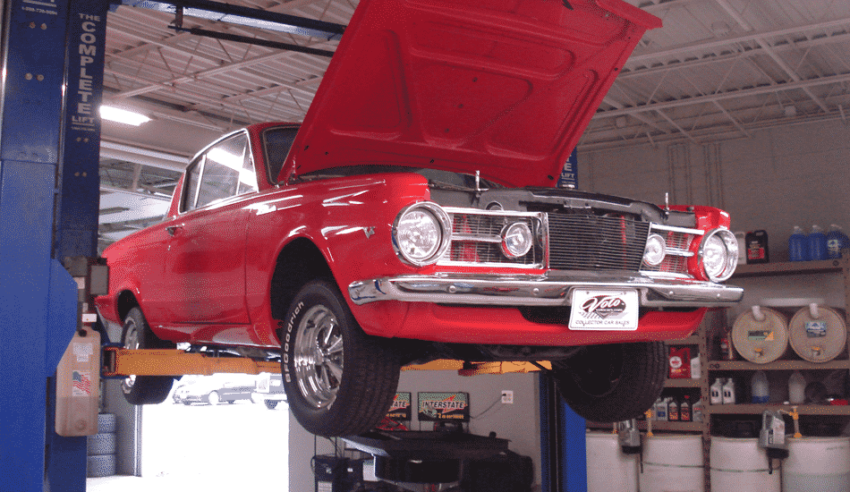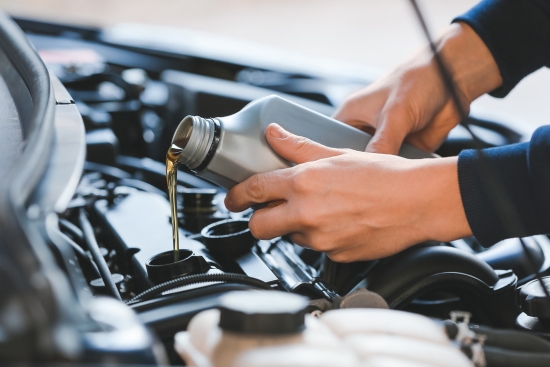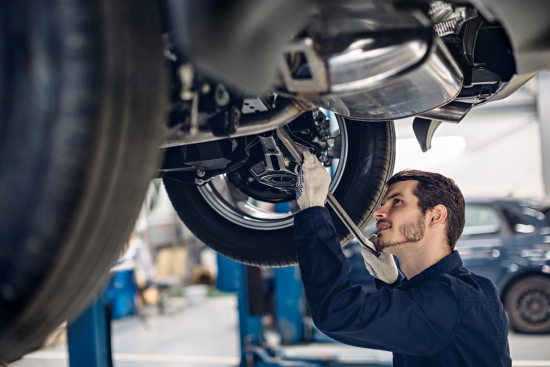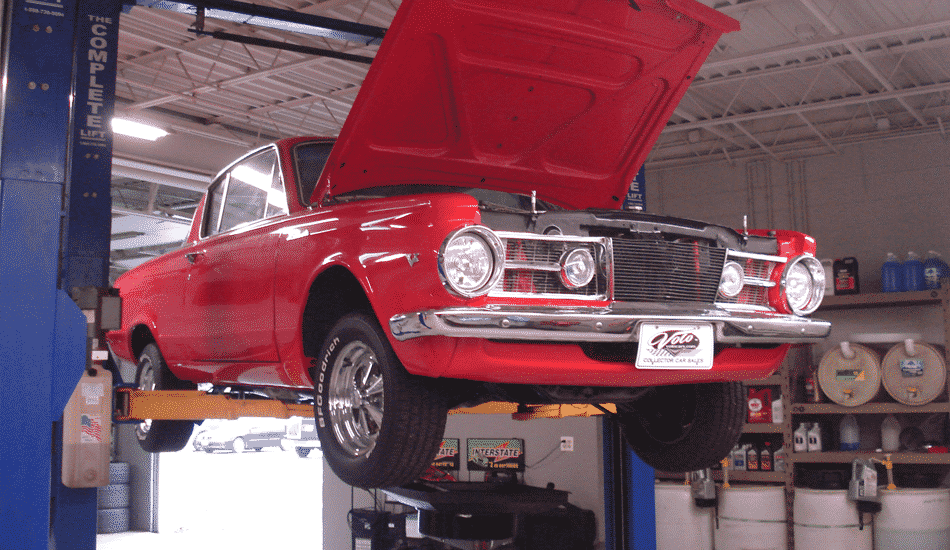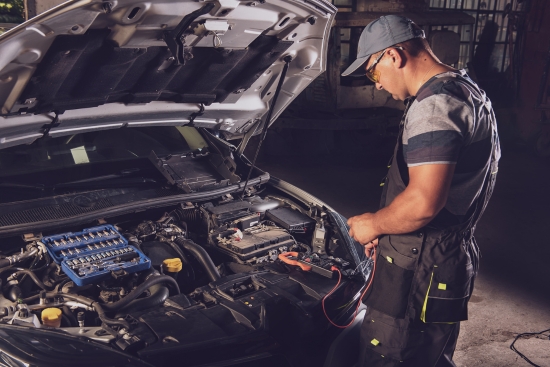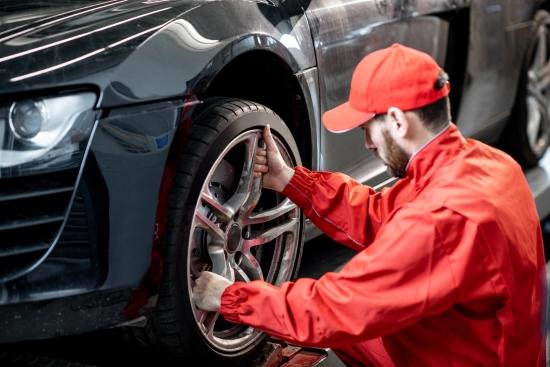If you want your classic car to hold its value, keeping up with regular service is important. Maintenance of a vintage auto includes oil changes, tune-ups, detailing, fluid checks, top-off and tire care. In this article I will address where to find a place that does antique car servicing, what makes a service different from doing a modern vehicle, and tips on things you can do yourself. I will also share my experience with the classic car service near me.
Find Classic Car Service Near Me
If you are seeking “Classic Car Service Near Me”, see the locations below…
A service and/or repair work on an antique car differs quite a bit from a modern vehicle. Much of it you can do yourself, but there are shops that will provide antique car servicing. At a minimum, you need to have your vehicle serviced once a season. I prefer to do it, when I winterize it.
How Does a Classic Car Service Near Me Work?
Many of the shops you will find that perform servicing on classic autos have been around for a while. They are often small shops and they do both classic cars and modern cars on special day.
When you contact them, they will ask you for a lot of information about the vehicle. This will include the make, model, year, mileage, condition, any modifications, any restorations, and how well it currently operates. I have seen shops that don’t work on all antique vehicles. For example, a shop may be okay to service some old American Muscle but shy away from 80’s JDM. It depends on the shop on their skill sets.
Once a shop is comfortable looking at your vehicle it is best to schedule a first-time consultation. You can ask for this before hiring them and it should be free. All you need to do is ask, then bring the car down. They will visually inspect it, pop the hood, and listen to it run. You can learn a lot by doing this and it can help you assess how knowledgeable the shop is before you give them your business.
What Can You Expect From a Classic Car Service Near Me
The first thing you can expect is an inspection of the vehicle. This will include tires, brakes, suspension, battery, fluids, rubber hoses, rubber seals, and listening to it run. The most common servicing that these places do are…
Oil Change & Chassis/Suspension Lube
An oil change on a vehicle hasn’t evolved much over the last 50 years. However, the suspension on an antique vehicle is completely changed. Vintage suspension systems don’t have sealed joints, which means they dry out and need to stay lubricated.
If you don’t keep up with regular lubrication or it is not applied correctly, you can end up with debris and water in your suspension joints. Chassis lubrication is a critical step to success in classic car servicing.
In addition to a suspension lubrication, they can also do an alignment.
Engine Service & Repair
The heart of a vintage auto of course is the engine. Whether or not it is original, restored, used, rebuilt, or remanufactured, these gas guzzlers are not built like today’s engines. At a classic car service center, you will find an expert mechanic who understands how old engines work. They understand carburetors, points, distributors, timing lights, point-gappers, pistons, condensers, cylinder heads, blocks, chokes, oil pumps, and early fuel injection systems, etc. If parts need to be replaced, they should also have relationships with places who source parts for classic cars.
Tire Maintenance & Brake Inspection
These shops will perform tire inspections. If you have a vintage auto that sits dormant then it can develop flat spots on the tires. These shops will inspect your tires and do rotation and balancing. On a classic car, you may only need a rortation every 3 to 4 years depending on how much you drive it.
They will also thoroughly inspect your brakes by removing the tires. They will check the drum, rotor calipers, and pads to ensure everything is functioning properly and doesn’t need replacement.
Other Maintenance Work
Any service will test your battery to ensure it is holding a good charge. Since some classic cars sit in storage all winter and may not be on a tender, the battery may need replacement.
Other things that get checked are rubber hoses and rubber seals. These can dry rot when they are old. The dry rotting effects increase if your vehicle sits in sunlight a lot.
General fluids also will get checked and topped off. This includes coolant, washer fluid, brake fluid, transmission fluid, etc. They may recommend flushing these systems out on specific mileage intervals.
Filters will be checked and changed. That includes oil filter, engine filter, air filter, etc…
Vehicle Not Running? Try a Mobile Mechanic
If you go to fire up your baby and it’s not turning over, there could be many reasons. if you aren’t a mechanic and would prefer not to get a tow, consider calling a mobile mechanic. They can come help troubleshoot the issue and provide your routine service at the vehicle’s current location. Many of these folks work on classic cars, but you should still make sure they are qualified to do maintenance on your year, make, and model.
Vintage Car Maintenance You Can Do Yourself
Maintaining a vintage car is expensive, but it is critical if you want it to retain its value. Therefore it is best to do some work yourself in between having a professional mechanic look at it. Doing your own maintenance is also helpful if you can reference the original car manual to see what is required. If you don’t have the manual, try one of these sites listed here.
Here are some things I would recommend you do on your own.
Exterior and Interior Detailing: Regularly hand washing your vehicle and cleaning the interior will help preserve its value. The exterior should be hand washed only and have a wax sealant applied to it to protect the paint. On the interior use leather, vinyl or fabric cleaner as appropriate and vacuum all the carpets. If you have a vinyl top use mild dish soap and a soft scrub brush. Tires should be cleaned with soap and water and a scrub brush.
Tune the Engine: This includes checking and replacing engine items that degrade over time. Parts like spark plugs, ignition wires, rotor, and distributor caps should all be looked at. While you’re at it, you should also change the gas and air filters. You can also find a specility shop that does tunes.
Change the Motor Oil: On a classic vehicle there are many metal moving parts and they require lubrication. Checking and changing your oil is critical to the proper functioning and maintenance of your vehicle. Oil degrades over time and at some point stops lubricating and then increases friction and mechanical wear.
Battery Maintenance: You should check the charge of the battery as well as check for corrosion around the terminals. In addition, inspect the cables to ensure they are in good condition. For a vehicle tucked away for the winter consider removing the battery and putting it on a tender.
Tire Care: If tires sit for too long (30 days without being driven), they begin to flat spot. If your vintage auto sits a lot without being driven, throw it in neutral and roll the car a few feet forward and back. This not only helps prevent flat spotting but also keeps brake calipers from developing issues. If your vehicle is away for the winter storing the car on blocks is also good. Removed tires should be stored upright, not lying down.
Starting It Regularly: To keep the lubrication flowing through the engine and to prevent liquid from bottoming in the hoses, you should start the vehicle and let it run. 15 minutes should be done big day, every other week, to keep the vehicle healthy.
Maintenance Tips for Classic Car Owners
Owning a classic car is not just about having a vintage piece of automotive history; it’s about taking care of a dream car that holds countless memories.
Proper maintenance ensures your prized vehicle remains in top condition, whether it’s for a Sunday cruise around town, a special event, or showcasing at a car show. Here are some essential tips for maintaining your classic car.
DIY Maintenance Tips
Classic cars require a unique approach to upkeep. Here are some DIY tips to keep your car running smoothly:
- Regular Cleaning: Regularly wash and wax your car to protect the paint and prevent rust. Use products specifically designed for vintage cars to maintain their style and luster.
- Check Fluids: Regularly check and top up all fluids. This includes engine oil, coolant, brake fluid, and transmission fluid.
- Battery Care: Classic car batteries need regular checks. Ensure the terminals are clean and the battery is properly charged, especially if you don’t take your car out for a ride often.
- Tire Pressure: Maintain the correct tire pressure. It’s not just about the wheel; proper tire pressure ensures a safer drive and better fuel efficiency.
- Inspect Belts and Hoses: Check for any signs of wear or cracks. Replace them if necessary to avoid breakdowns.
When to Seek Professional Help
While DIY maintenance is fun and rewarding, there are times when you should seek professional services:
- Engine Troubles: If you notice unusual noises, smoke, or a decrease in performance, it’s time to consult a professional.
- Electrical Issues: Classic cars have unique wiring systems. If you’re facing issues with the lights, indicators, or other electrical components, get a professional to address these problems.
- Transmission Problems: Difficulty in shifting gears or unusual sounds from the transmission warrants a visit to a specialist.
Long-term Care of Classic Cars
Ensuring the longevity of your classic car involves more than just regular maintenance. Here are some long-term care tips:
- Proper Storage: Store your car in a dry, ventilated space to protect it from the elements. If you’re away for an extended period, consider rented storage facilities.
- Regular Use: Regular use helps keep the mechanical parts in working order. Even a short trip around the block can be beneficial.
- Record Keeping: Keep a detailed record of all maintenance and repairs. This process not only helps in keeping track of the car’s history but also adds to its value.
- Join a Community: Connect with other classic car owners. They can offer valuable advice, share experiences, and provide recommendations for trustworthy service providers.
By following these tips, you ensure your classic car remains not just a vehicle of transportation but a memorable and enjoyable part of your life. Whether it’s for a wedding anniversary, a prom night, or just to enjoy a leisurely day out, your classic car will always be ready for the road ahead.
Classic Car Service Near Me – Conclusion
Whether it’s an original or restoration an old antique vehicle requires special care to retain its value. Not all your local mechanic shops can handle a classic auto. These vehicles can’t be wired into a computer to tell them what is wrong.
These vehicles require special old-school automotive know-how and an understanding of mechanical engines. If you own a vintage autombile getting it serviced regularly is the best thing to do for it. That and do some of your own up keep between professional appointments. That is what I have learned from the place that performs classic car service near me.

